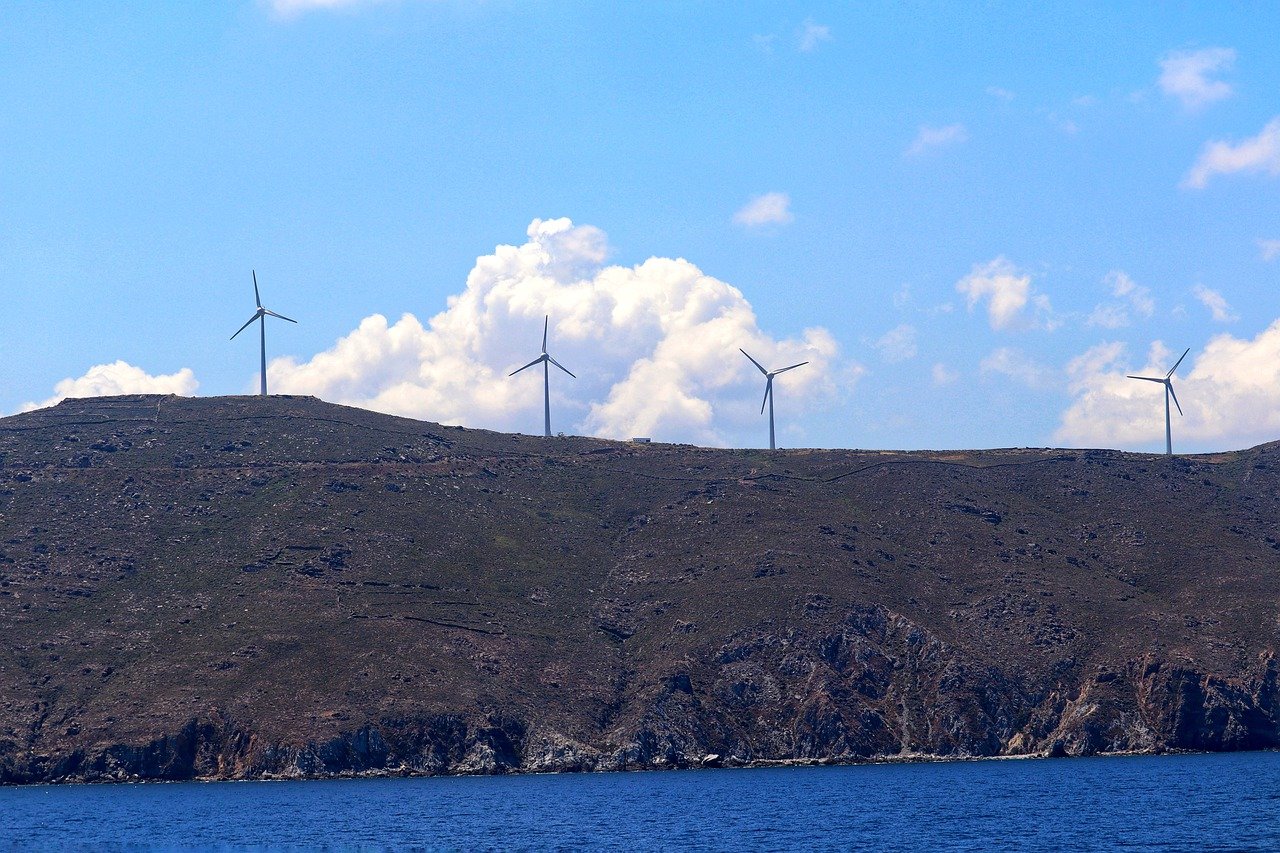Environmental Philosophy - A Modern Perspective
In our rapidly changing world, the concept of environmental philosophy has emerged as a critical lens through which we can examine the intricate relationship between humans and nature. This field of study is not just an academic exercise; it is a call to action for all of us. As we face escalating ecological crises, understanding the philosophical underpinnings of our interactions with the environment becomes essential. What drives our decisions regarding the planet? Are we merely passive observers, or do we hold the power to shape our ecological destiny? These questions resonate deeply in today's society, prompting a reevaluation of our values and ethics concerning the natural world.
The roots of environmental philosophy can be traced back to ancient traditions, where nature was often revered and seen as a source of wisdom. Thinkers like Aristotle and Plato laid the groundwork for how we perceive our place in the universe. Fast forward to the modern era, and we see a significant shift in perspective, particularly with the rise of the environmental movement in the 20th century. Figures such as Aldo Leopold and Rachel Carson challenged conventional views, urging society to recognize the interconnectedness of all living beings. Their work ignited a spark that has grown into a global conversation about our ethical obligations to the environment.
At its core, environmental philosophy encourages us to consider the value of nature beyond mere resources. It invites us to ponder concepts like intrinsic versus instrumental value, sustainability, and the moral status of non-human entities. For instance, when we talk about intrinsic value, we refer to the inherent worth of nature, independent of its utility to humans. This perspective challenges the anthropocentric view that places humans at the center of existence, advocating instead for a more holistic approach that recognizes the rights of all living beings.
As we delve deeper into this field, we encounter the contrasting views of anthropocentrism and ecocentrism. Anthropocentrism prioritizes human interests, often leading to exploitation of natural resources without regard for ecological consequences. In contrast, ecocentrism posits that all forms of life have an equal right to exist and flourish. This fundamental shift in worldview not only influences our ethical considerations but also shapes environmental policies worldwide. For example, ecocentric policies tend to promote conservation efforts and sustainable practices, whereas anthropocentric policies may prioritize economic growth over ecological health.
Moreover, the role of human agency cannot be overstated in environmental philosophy. Our choices and behaviors significantly impact the planet, highlighting the need for responsible stewardship. Every decision we make—from the products we consume to our energy usage—reflects our values and priorities. As we navigate these choices, we must ask ourselves: Are we nurturing the environment or contributing to its degradation? This self-reflection is crucial as we strive for a more sustainable future.
In recent years, the discourse surrounding non-human rights has gained momentum, challenging us to rethink our relationship with nature. Philosophers argue for granting legal rights to animals, plants, and ecosystems, fostering a more compassionate relationship with the earth. This emerging perspective encourages us to view ourselves not as conquerors of nature but as co-inhabitants with responsibilities towards all living beings.
One of the most fascinating movements within environmental philosophy is deep ecology. This philosophy advocates for the intrinsic value of all living beings, emphasizing that nature should be preserved for its own sake, not merely for human benefit. Deep ecology challenges us to rethink our priorities and consider the broader implications of our actions on the planet. It has inspired countless activists and policymakers to adopt a more holistic approach to environmental issues, reinforcing the idea that every action counts in the grand tapestry of life.
As we confront contemporary challenges like climate change, biodiversity loss, and pollution, environmental philosophy provides essential frameworks for understanding these complex issues. It encourages us to consider not just the scientific data but also the ethical implications of our choices. The intersection of science and philosophy is crucial here; scientific discoveries inform our ethical considerations, while philosophical inquiry can guide scientific exploration towards more sustainable practices.
Looking ahead, the future of environmental philosophy is ripe with possibilities. Emerging trends and interdisciplinary approaches are paving the way for new philosophical paradigms that can effectively address the complexities of global environmental crises. As we continue to grapple with these challenges, it is vital that we remain open to new ideas and perspectives that can enrich our understanding and guide us towards a more sustainable future.
- What is environmental philosophy?
Environmental philosophy is a branch of philosophy that examines the relationship between humans and the environment, exploring ethical and moral considerations regarding nature.
- Why is environmental philosophy important?
It helps us understand our responsibilities toward the environment and encourages sustainable practices that benefit both humanity and nature.
- What are the key concepts in environmental ethics?
Key concepts include intrinsic vs. instrumental value, sustainability, and the moral consideration of non-human entities.
- How does deep ecology differ from traditional environmentalism?
Deep ecology advocates for the intrinsic value of all living beings, whereas traditional environmentalism often focuses on human-centered benefits.

The Origins of Environmental Philosophy
The journey of environmental philosophy is as rich and complex as the ecosystems it seeks to understand and protect. To truly appreciate its evolution, we must travel back in time, tracing the roots of human thought regarding nature. Ancient civilizations, such as the Greeks, laid the groundwork for philosophical inquiry, often pondering humanity's relationship with the natural world. Thinkers like Plato and Aristotle introduced ideas about the intrinsic value of nature, albeit through an anthropocentric lens, where human needs and desires were prioritized.
As we move through history, the Renaissance sparked a renewed interest in nature, emphasizing observation and experience. This period saw the emergence of scientific inquiry, which began to challenge prevailing philosophical norms. However, it wasn't until the 18th and 19th centuries that a more profound shift occurred. The Romantic movement celebrated nature's beauty and power, inspiring thinkers like John Muir and Henry David Thoreau to advocate for a deep connection with the environment. Their writings urged society to recognize the inherent value of nature beyond its utility to humans.
Moving into the 20th century, we witness the birth of modern environmental philosophy, influenced by various social and ecological movements. The post-World War II era brought about a heightened awareness of environmental degradation, prompting philosophers to reevaluate ethical frameworks. Key figures, such as Rachel Carson, whose book Silent Spring exposed the dangers of pesticides, played a pivotal role in shaping public consciousness about environmental issues. This period marked a transition from a predominantly human-centered view to one that began to acknowledge the rights and values of non-human entities.
Throughout this evolution, several philosophical frameworks emerged, each offering unique perspectives on our responsibilities toward the environment. For instance, the concept of biocentrism argues for the intrinsic value of all living beings, while anthropocentrism maintains that human interests are paramount. The tension between these perspectives continues to influence contemporary debates in environmental ethics.
Today, the origins of environmental philosophy serve as a reminder of our interconnectedness with the natural world. As we face unprecedented challenges such as climate change and biodiversity loss, understanding this history is crucial. It informs our current ethical considerations and inspires us to forge a path toward a more sustainable future. The philosophical inquiries of the past not only illuminate our current dilemmas but also provide a foundation for innovative solutions that respect both human and non-human life.

Key Concepts in Environmental Ethics
Environmental ethics is a rich field that examines our moral relationship with the natural world. At its core, it grapples with two fundamental types of value: intrinsic value and instrumental value. Intrinsic value refers to the inherent worth of an entity, independent of its utility to humans. For instance, a tree may hold intrinsic value simply by existing, while its instrumental value would be tied to the benefits it provides, such as shade, oxygen, or timber. Understanding these concepts is crucial because they shape our responsibilities and ethical considerations towards the environment.
The idea of sustainability also plays a vital role in environmental ethics. It encourages us to think about how our actions today impact future generations. This concept is not just about conserving resources; it’s about ensuring that our ecosystems remain healthy and vibrant for years to come. When we adopt a sustainable mindset, we begin to see the interconnectedness of all life forms, fostering a sense of stewardship rather than ownership over nature.
Another important aspect of environmental ethics is the moral consideration of non-human entities. This raises profound questions: Do animals have rights? Should plants be afforded protection? The shift towards recognizing the rights of non-human entities is gaining momentum, as more people advocate for a compassionate relationship with nature. The discussions around these rights often lead us to consider the following:
- What ethical frameworks can support the rights of non-human entities?
- How do cultural perspectives influence our view of nature?
- What role do legal systems play in protecting the environment?
These questions are not just theoretical; they have practical implications for environmental policies and conservation efforts. For example, the legal recognition of animal rights has led to significant changes in legislation regarding animal welfare, pushing us towards a more ethical treatment of all living beings.
When we dive deeper into environmental ethics, we encounter two contrasting worldviews: anthropocentrism and ecocentrism. Anthropocentrism places humans at the center of moral consideration, viewing nature primarily as a resource for human use. This perspective often leads to exploitation and degradation of the environment, as it encourages a mindset of domination over nature.
On the other hand, ecocentrism advocates for the intrinsic value of all living beings and ecosystems, emphasizing the interconnectedness of life. This perspective challenges us to reconsider our place within the natural world, urging us to act as caretakers rather than conquerors. The implications of these differing worldviews are profound, influencing everything from environmental policies to everyday choices we make as consumers.
Human agency is a critical element in environmental philosophy, highlighting the power of our choices and actions. Every decision we make, whether it’s choosing to recycle, supporting sustainable brands, or even engaging in activism, has the potential to either nurture or harm the environment. This realization can be both empowering and daunting. It places the responsibility squarely on our shoulders, reminding us that we are not merely passive observers in the ecological crisis but active participants capable of driving change.
The discourse surrounding the rights of non-human entities is rapidly evolving. Philosophers and activists alike are advocating for legal rights for animals, plants, and entire ecosystems. This movement is not just about protecting individual species; it’s about recognizing the complex web of life that sustains us all. By granting rights to non-human entities, we foster a more compassionate relationship with nature, one that acknowledges their intrinsic value and our moral obligations towards them.
Deep ecology is a philosophical movement that takes these concepts further, positing that all living beings have inherent worth regardless of their utility to humans. This radical shift in perspective encourages a profound respect for nature and advocates for a fundamental transformation in how we view our relationship with the environment. The implications for environmental activism and policy-making are significant, urging us to adopt a more holistic approach to ecological conservation.
Q: What is environmental ethics?
A: Environmental ethics is a branch of philosophy that explores the moral relationship between humans and the natural world, focusing on our responsibilities towards the environment.
Q: What is the difference between intrinsic and instrumental value?
A: Intrinsic value refers to the inherent worth of an entity, while instrumental value relates to its usefulness to humans.
Q: Why is sustainability important?
A: Sustainability is crucial for ensuring that our natural resources remain available for future generations while maintaining the health of ecosystems.
Q: What is deep ecology?
A: Deep ecology is a philosophical movement that advocates for the intrinsic value of all living beings and calls for a radical shift in how we interact with the environment.

Anthropocentrism vs. Ecocentrism
When we delve into the realms of environmental philosophy, two powerful perspectives emerge: anthropocentrism and ecocentrism. At first glance, they might seem like two sides of the same coin, but they represent fundamentally different worldviews regarding our relationship with the natural world. Anthropocentrism, as the name suggests, places humans at the center of the universe. This perspective argues that human beings are the most significant entities, and the environment holds value primarily in relation to its utility for human needs and desires. In this view, nature is often seen as a resource to be exploited for economic growth and development. Think of it as viewing Earth as a vast supermarket where everything is up for grabs, as long as it benefits humanity.
On the flip side, we have ecocentrism, a philosophy that embraces the idea of intrinsic value in all living beings and ecosystems. This perspective posits that nature has worth independent of human use. Ecocentrism encourages a holistic view, where every component of the ecosystem—from the tiniest microorganism to the largest mammal—plays a crucial role in maintaining the balance of life. Imagine a grand orchestra where each instrument, no matter how small, contributes to the symphony of existence. In this light, humans are just one part of a much larger ecological web, and our actions should reflect respect and care for all forms of life.
The implications of these contrasting views are profound. Policies shaped by anthropocentric thinking often prioritize short-term gains, leading to environmental degradation, while ecocentric frameworks advocate for sustainable practices that respect the planet's limits. For instance, consider the debate surrounding deforestation. An anthropocentric approach might justify clearing forests for timber or agriculture, arguing that it creates jobs and economic opportunities. In contrast, an ecocentric perspective would emphasize the ecological significance of forests, advocating for their preservation due to their role in biodiversity and climate regulation.
In the table below, we can summarize the key differences between anthropocentrism and ecocentrism:
| Aspect | Anthropocentrism | Ecocentrism |
|---|---|---|
| Value System | Human-centered, nature valued for its utility | Nature-centered, intrinsic value of all life forms |
| Environmental Policy | Short-term economic growth | Sustainable practices and conservation |
| Human Role | Dominant species, exploitative | Part of a larger ecosystem, interdependent |
Understanding these two philosophies is crucial as we navigate the complex challenges facing our planet today. The choice between anthropocentrism and ecocentrism isn't just a philosophical debate; it has real-world implications that affect everything from environmental policy to individual behavior. As we confront issues like climate change, biodiversity loss, and pollution, recognizing the value of all life forms and ecosystems may be the key to fostering a more sustainable future. So, which perspective resonates more with you? Are we merely stewards of our own interests, or are we part of a larger ecological family that deserves respect and protection?
- What is anthropocentrism? Anthropocentrism is a worldview that places humans at the center of importance, valuing nature primarily for its usefulness to human beings.
- What is ecocentrism? Ecocentrism is a philosophy that recognizes the intrinsic value of all living beings and ecosystems, advocating for a holistic approach to environmental ethics.
- How do these perspectives influence environmental policies? Anthropocentric policies often prioritize economic growth, while ecocentric approaches promote sustainability and conservation.

The Role of Human Agency
The concept of human agency is pivotal in environmental philosophy, acting as a double-edged sword that can either cut through the fog of ecological crisis or exacerbate it. Our choices and actions resonate through the environment, shaping not only our immediate surroundings but also the broader ecological landscape. Think of it like a ripple effect: when we toss a stone into a pond, the ripples spread outwards, affecting everything in their path. Similarly, our decisions regarding resource consumption, waste management, and environmental conservation have far-reaching consequences. It’s essential to recognize that we are not mere spectators in this unfolding drama; we are active participants with the power to influence the narrative.
Human agency encompasses the ability to make conscious choices that can either harm or heal our planet. Every time we decide to recycle, reduce our carbon footprint, or support sustainable practices, we exercise our agency in a way that nurtures the environment. Conversely, when we engage in activities that lead to deforestation, pollution, or habitat destruction, we wield our agency destructively. This duality raises important questions: Are we aware of the implications of our actions? Are we willing to take responsibility for the environmental legacy we leave behind?
Moreover, the role of human agency extends beyond individual actions. It also encompasses collective choices made by communities, organizations, and governments. For instance, policy decisions regarding renewable energy, conservation efforts, and environmental regulations reflect the agency of those in power. These decisions can either pave the way for a sustainable future or plunge us further into ecological chaos. It’s a reminder that our agency is not just personal; it’s also political. When we advocate for change or support policies that prioritize the environment, we are exercising our agency on a larger scale.
To truly understand the role of human agency, we must also consider the ethical dimensions of our choices. What moral responsibilities do we have towards the environment and future generations? This question challenges us to think critically about the impact of our actions and the values that guide them. For instance, are we motivated by short-term gains, or do we prioritize long-term sustainability? The answers to these questions can significantly shape our approach to environmental stewardship.
In conclusion, human agency is a powerful force in the realm of environmental philosophy. It emphasizes that we are not passive observers but active players in the ecological drama. By embracing our agency responsibly, we can nurture the planet and advocate for a more sustainable future. As we navigate the complexities of environmental challenges, let us remember that our choices matter, and it is within our power to create positive change.
- What is human agency in environmental philosophy?
Human agency refers to the capacity of individuals and groups to make choices that impact the environment, either positively or negatively. - How can individuals exercise their agency for the environment?
Individuals can exercise their agency by making conscious choices such as recycling, reducing waste, and supporting sustainable practices. - What is the significance of collective human agency?
Collective human agency emphasizes the importance of community and political actions in shaping environmental policies and practices. - Why is ethical consideration important in exercising human agency?
Ethical considerations guide our choices and responsibilities towards the environment, helping us prioritize sustainability over short-term gains.

Non-Human Rights
The discourse surrounding is gaining momentum in contemporary environmental philosophy, challenging traditional views on the moral status of animals, plants, and ecosystems. Historically, ethical frameworks have predominantly centered around human interests, often relegating non-human entities to mere resources or tools for human benefit. However, as our understanding of ecological interdependence deepens, the call for recognizing the inherent rights of non-human life becomes increasingly compelling. This shift is not just a philosophical musing; it is a necessary evolution in our ethical considerations, urging us to rethink our relationship with the natural world.
At the core of this movement is the idea that non-human beings possess intrinsic value, deserving of moral consideration and legal rights. Advocates argue that just as human rights emerged from the recognition of individual dignity and worth, so too should the rights of non-human entities. This perspective suggests that animals, plants, and ecosystems should not only be viewed through the lens of utility but rather as beings with their own interests and rights that warrant protection.
Philosophers such as Tom Regan and Peter Singer have been pivotal in this conversation, emphasizing the need to extend ethical considerations beyond anthropocentrism. Regan, for instance, posits that certain animals possess inherent value due to their capacity for subjective experiences, thereby deserving rights akin to those of humans. Singer, on the other hand, advocates for the principle of equal consideration, arguing that the suffering of non-human beings should be weighed equally to that of humans in moral deliberations.
Moreover, the implications of recognizing non-human rights extend into practical realms, influencing legal systems and conservation efforts. For instance, some countries have begun to enact laws that grant legal personhood to certain animals, allowing them to be represented in court. This legal recognition not only protects these beings from harm but also fosters a more compassionate relationship between humans and the natural world.
In addition to animals, the rights of ecosystems and natural entities are gaining traction. The concept of ecosystem rights posits that entire ecosystems, such as rivers, forests, and mountains, should have rights that protect their existence and integrity. This perspective aligns with indigenous philosophies that have long recognized the interconnectedness of all life forms and the importance of preserving the natural world for future generations.
As we navigate the complexities of modern environmental challenges, the recognition of non-human rights may serve as a crucial framework for fostering a more ethical and sustainable coexistence with the planet. By embracing this philosophy, we not only honor the intrinsic value of non-human life but also acknowledge our shared responsibility in nurturing and protecting the ecosystems that sustain us all.
- What are non-human rights? Non-human rights refer to the moral and legal entitlements granted to non-human entities, including animals, plants, and ecosystems, recognizing their intrinsic value and interests.
- Why are non-human rights important? They challenge anthropocentric views, promote ethical considerations for all living beings, and encourage sustainable practices that protect the environment.
- How can non-human rights be implemented? Through legal reforms, advocacy, and public awareness campaigns aimed at recognizing the rights of non-human entities in various legal systems.
- Are there examples of non-human rights being recognized? Yes, some countries have granted legal personhood to certain animals and ecosystems, allowing them to be represented in court and protected by law.

Deep Ecology and Its Implications
Deep ecology is more than just a philosophical stance; it's a profound movement that challenges our very notions of existence and our place within the natural world. Emerging in the 1970s, this philosophy, championed by thinkers like Arne Naess, argues for the intrinsic value of all living beings, regardless of their utility to human beings. In essence, deep ecology posits that nature should not merely be viewed through an anthropocentric lens, but rather as a complex web of interrelations where every entity—be it a towering redwood or a tiny insect—has its own worth and role to play.
This perspective has significant implications for environmental activism and policy-making. By advocating for the inherent rights of nature, deep ecology urges us to rethink our relationship with the environment. It challenges us to consider questions like: What are the moral implications of our actions on ecosystems? How can we foster a more equitable coexistence with non-human life? These inquiries lead to a more holistic understanding of environmental issues, moving beyond surface-level solutions to address the root causes of ecological degradation.
One of the key tenets of deep ecology is the idea of biocentrism, which shifts the focus from human-centered ethics to a broader ecological perspective. This shift encourages us to recognize that the well-being of humanity is deeply intertwined with the health of the planet. For instance, when we exploit natural resources without regard for the ecosystems that support them, we not only harm other species but also jeopardize our own future. This interconnectedness is a fundamental principle that deep ecology emphasizes, reminding us that our survival depends on the survival of all species.
Moreover, deep ecology advocates for a radical transformation in how we perceive nature. It encourages a move away from viewing the environment solely as a resource to be exploited, towards seeing it as a community of life that we are a part of. This shift can lead to a more sustainable and compassionate approach to environmental stewardship. For example, practices such as permaculture and rewilding embody deep ecological principles by promoting biodiversity and restoring natural habitats, ultimately benefiting both the environment and humanity.
The implications of deep ecology extend into various domains, including policy-making, education, and personal lifestyle choices. In policy-making, for instance, a deep ecological approach could lead to stricter regulations on pollution and resource extraction, prioritizing the health of ecosystems over short-term economic gains. In education, it fosters a curriculum that emphasizes ecological literacy, teaching future generations the importance of living in harmony with nature. On a personal level, individuals inspired by deep ecology may choose to adopt more sustainable lifestyles, such as reducing waste, supporting local agriculture, and advocating for animal rights.
In conclusion, deep ecology offers a transformative lens through which we can view our relationship with the natural world. By recognizing the intrinsic value of all living beings and advocating for their rights, we can foster a more compassionate and ethical approach to environmental issues. As we face escalating ecological crises, the principles of deep ecology provide not just a philosophical framework, but a call to action for individuals and communities alike to engage in meaningful change.
- What is deep ecology? Deep ecology is a philosophical movement that emphasizes the intrinsic value of all living beings and advocates for a radical shift in how we relate to the natural world.
- Who are the key figures in deep ecology? Arne Naess is one of the most notable figures associated with deep ecology, but other thinkers like Bill Devall and Warwick Fox have also contributed significantly to its development.
- How does deep ecology differ from traditional environmentalism? While traditional environmentalism often focuses on human-centered benefits of conservation, deep ecology advocates for the inherent rights of nature itself, regardless of human interests.
- What are some practical applications of deep ecology? Practical applications include sustainable agriculture, conservation efforts that prioritize ecosystem health, and policies that protect non-human rights.

Contemporary Challenges in Environmental Philosophy
In today's world, environmental philosophy faces a multitude of contemporary challenges that are as complex as they are urgent. With the planet teetering on the brink of ecological collapse, the philosophical frameworks we use to understand our relationship with nature are being put to the test. Issues such as climate change, biodiversity loss, and pollution are not just scientific problems; they are deeply philosophical ones that force us to reconsider our ethical obligations to the environment and to each other.
Climate change, for instance, is not merely an environmental crisis; it is a moral dilemma that raises questions about justice, responsibility, and the future of humanity. How do we reconcile the needs of current generations with those of future ones? This dilemma challenges the very foundations of our ethical frameworks. For example, the principle of sustainability urges us to consider the long-term impacts of our actions, but what does that mean in a world where immediate economic gains often take precedence?
Biodiversity loss presents another pressing challenge. As species disappear at an alarming rate, we must confront the question of intrinsic value versus instrumental value. Are non-human entities valuable simply for their role in human life, or do they possess their own worth? This question is critical in shaping conservation efforts and environmental policies. Philosophers like Aldo Leopold, who championed the idea of a land ethic, remind us that our moral community must extend beyond human beings to include the entire ecosystem.
Pollution, too, is a significant challenge that provokes ethical considerations. The consequences of our industrial activities often disproportionately affect marginalized communities, raising issues of environmental justice. Who bears the burden of pollution? This is where the intersection of social justice and environmental philosophy becomes crucial. We cannot address ecological issues without acknowledging the social structures that underpin them.
As we navigate these challenges, it is essential to recognize that environmental philosophy does not exist in a vacuum. The relationship between science and philosophy plays a vital role in shaping our understanding of these issues. Scientific discoveries inform our ethical considerations, and philosophical thought can guide scientific inquiry toward more sustainable practices. For instance, the concept of ecosystem services—the benefits that humans derive from nature—has gained traction, highlighting the need for a philosophical approach that values the environment not just for its resources but for its inherent worth.
In light of these challenges, the future of environmental philosophy is likely to be characterized by interdisciplinary approaches. By integrating insights from science, sociology, and economics, we can develop more robust frameworks that address the complexities of global environmental crises. The questions we face are not just philosophical; they are existential, and they require a collective response that transcends traditional disciplinary boundaries.
In conclusion, contemporary challenges in environmental philosophy compel us to rethink our ethical responsibilities and our relationship with the natural world. As we grapple with issues like climate change, biodiversity loss, and pollution, we must also engage with the philosophical questions that underpin these crises. Only through a concerted effort to blend scientific inquiry with philosophical thought can we hope to forge a path toward a more sustainable future.
- What is environmental philosophy?
Environmental philosophy is a branch of philosophy that examines the ethical, moral, and conceptual issues surrounding the environment and our relationship with it.
- Why is climate change a philosophical issue?
Climate change raises ethical questions about our responsibilities to future generations, justice, and the moral status of non-human entities.
- How does biodiversity loss affect environmental ethics?
Biodiversity loss challenges our understanding of value in nature and prompts questions about conservation and our obligations to other species.
- What role does science play in environmental philosophy?
Science provides empirical data that informs ethical considerations, while philosophy helps interpret and contextualize scientific findings.

The Intersection of Science and Philosophy
When we think about the world around us, it's hard to ignore the profound relationship between science and philosophy. These two fields, while distinct, often intertwine in fascinating ways, shaping our understanding of the environment and our place within it. Science provides us with the tools to explore the natural world, offering empirical evidence and data that can illuminate the complexities of ecological systems. On the other hand, philosophy challenges us to ponder the ethical implications of our scientific discoveries and the moral responsibilities that arise from them.
Consider, for instance, the alarming realities of climate change. Scientific research has laid bare the stark evidence: rising temperatures, melting ice caps, and increasing frequency of natural disasters. But what does this mean for us as a society? Here, philosophy steps in, urging us to examine the ethical dimensions of our actions. Are we merely passive observers of these changes, or do we have a duty to act? This intersection prompts critical questions: Should we prioritize economic growth over environmental sustainability? How do we balance our needs against the needs of future generations?
Moreover, the relationship between science and philosophy is not just about addressing ethical dilemmas; it's also about enhancing our understanding of the universe. For example, the theory of evolution has revolutionized biology, but it also raises philosophical questions about the nature of existence and our place in the grand scheme of life. Are humans merely products of chance, or do we possess a unique role in the ecosystem? Such inquiries lead to deeper reflections on what it means to be human and how we relate to non-human entities. This philosophical exploration can foster a greater sense of responsibility towards the environment.
One of the most compelling aspects of this intersection is the way it encourages interdisciplinary collaboration. Scientists and philosophers can work together to tackle pressing environmental issues, combining empirical research with ethical reasoning to devise solutions that are not only effective but also morally sound. For instance, in the realm of conservation biology, scientists may provide data on endangered species, while philosophers can contribute insights on the intrinsic value of these species and the ethical implications of their extinction.
Furthermore, as we face increasingly complex environmental challenges, the integration of scientific knowledge and philosophical inquiry becomes essential. This collaboration can lead to innovative approaches that address issues like pollution and biodiversity loss. By understanding the scientific basis of these problems, we can develop ethical frameworks that guide our responses, ensuring that we consider both the immediate and long-term impacts of our actions.
In conclusion, the intersection of science and philosophy is a dynamic and enriching space that invites us to reflect on our relationship with the environment. It challenges us to think critically about our choices and their consequences, urging us to embrace a holistic approach to environmental stewardship. As we navigate the complexities of the modern world, fostering dialogue between these two fields is crucial for creating a sustainable future.
- What is the role of philosophy in environmental science?
Philosophy helps frame ethical questions and responsibilities related to environmental issues, guiding how we interpret scientific findings and their implications for society. - How can scientists and philosophers collaborate effectively?
By engaging in interdisciplinary dialogues, they can combine empirical evidence with ethical reasoning to address complex environmental challenges. - Why is it important to consider ethics in environmental science?
Considering ethics ensures that our actions are not only effective but also just and fair, taking into account the needs of both current and future generations.

Future Directions in Environmental Thought
As we stand at the crossroads of environmental crisis and philosophical inquiry, the future of environmental thought is evolving in exciting and unexpected ways. The pressing challenges we face, from climate change to biodiversity loss, demand not only innovative solutions but also a profound shift in how we conceptualize our relationship with the natural world. One of the most significant trends is the increasing recognition of the interconnectedness of all life forms. This holistic perspective encourages us to view ecosystems as complex webs where every thread is vital, reminding us that our actions can have far-reaching consequences.
Furthermore, the integration of technology and environmental philosophy is paving new avenues for understanding and activism. With advancements in artificial intelligence and data analytics, we now have unprecedented tools to model ecological systems and predict the impacts of our choices. This intersection of science and philosophy not only enhances our understanding of ecological dynamics but also challenges us to rethink ethical frameworks in light of new information. For instance, how do we reconcile the potential benefits of technological interventions with the risks they pose to natural systems? This question is at the heart of contemporary environmental discourse.
Moreover, the rise of social movements advocating for environmental justice is reshaping the narrative around environmental philosophy. These movements highlight the disproportionate impact of environmental degradation on marginalized communities, urging us to consider equity and justice as fundamental components of any environmental ethic. This shift is prompting philosophers to expand their frameworks to include social dimensions, thereby fostering a more inclusive approach that recognizes the voices of those often left unheard. The question now is: how can we ensure that future environmental policies reflect this commitment to justice?
In addition to these developments, the concept of post-humanism is gaining traction within environmental philosophy. This perspective challenges the anthropocentric view that has dominated traditional thought, suggesting that we must move beyond human-centered ethics to consider the intrinsic value of all beings. Post-humanism encourages us to envision a world where non-human entities are recognized as active participants in ecological relationships, fundamentally altering our ethical considerations and responsibilities. This philosophical shift raises intriguing questions about our role as stewards of the planet and the moral obligations we hold towards other forms of life.
Finally, as we look toward the future, interdisciplinary approaches will be crucial in shaping environmental thought. By integrating insights from fields such as economics, sociology, and ecology, we can develop comprehensive strategies that address the multifaceted nature of environmental issues. Collaborative efforts across disciplines will foster innovative solutions that are not only effective but also ethically sound. As we navigate this complex landscape, the challenge lies in maintaining a balance between technological advancement and ecological integrity, ensuring that progress does not come at the expense of the very systems that sustain us.
- What is environmental philosophy? Environmental philosophy is a branch of philosophy that explores the relationship between humans and the environment, examining ethical, social, and political dimensions.
- How does environmental philosophy address climate change? Environmental philosophy provides ethical frameworks for understanding our responsibilities towards the environment, guiding policy-making and individual actions in response to climate change.
- What role does technology play in environmental thought? Technology can enhance our understanding of ecological systems and inform ethical considerations, but it also raises questions about risks and the impact on natural environments.
- Why is environmental justice important? Environmental justice emphasizes the need to address the inequities faced by marginalized communities in relation to environmental degradation, ensuring that all voices are heard in the decision-making process.
Frequently Asked Questions
- What is environmental philosophy?
Environmental philosophy is a branch of philosophy that explores the relationship between humans and the environment. It examines ethical and moral questions regarding our responsibilities toward nature, considering both the intrinsic and instrumental values of the natural world.
- How did environmental philosophy originate?
The origins of environmental philosophy can be traced back to ancient philosophical traditions, but it gained prominence in the 20th century as awareness of ecological issues grew. Key thinkers and movements, such as deep ecology and ecofeminism, have significantly influenced its development.
- What are intrinsic and instrumental values in environmental ethics?
Intrinsic value refers to the inherent worth of an entity, regardless of its utility to humans, while instrumental value is based on the usefulness of an entity to human beings. Understanding these concepts is crucial for determining how we should interact with and protect the environment.
- What is the difference between anthropocentrism and ecocentrism?
Anthropocentrism places humans at the center of moral consideration, emphasizing human interests and needs. In contrast, ecocentrism advocates that all living beings and ecosystems have inherent worth, promoting a more holistic approach to environmental ethics.
- Why is human agency important in environmental philosophy?
Human agency is significant because our choices and actions directly impact the environment. By recognizing our role as stewards of the Earth, we can make responsible decisions that nurture rather than harm our natural surroundings.
- What are non-human rights, and why are they important?
Non-human rights refer to the legal and moral rights granted to animals, plants, and ecosystems. Advocating for these rights fosters a more compassionate relationship with nature and encourages ethical considerations in how we treat non-human entities.
- What is deep ecology?
Deep ecology is a philosophical movement that emphasizes the intrinsic value of all living beings, advocating for a profound shift in how we perceive and interact with the natural world. It calls for radical changes in environmental policies and activism to protect ecosystems and biodiversity.
- What contemporary challenges does environmental philosophy address?
Environmental philosophy tackles pressing issues such as climate change, biodiversity loss, and pollution. It provides ethical frameworks and insights that help us understand the complexities of these challenges and guide our responses to them.
- How does science intersect with environmental philosophy?
The intersection of science and philosophy is crucial, as scientific discoveries inform our ethical considerations regarding the environment. Philosophy helps us interpret these findings and develop a deeper understanding of our responsibilities toward the natural world.
- What does the future hold for environmental philosophy?
The future of environmental philosophy may involve emerging trends and interdisciplinary approaches that address the complexities of global environmental crises. New philosophical paradigms may arise, enriching our understanding and guiding our actions in a rapidly changing world.



















